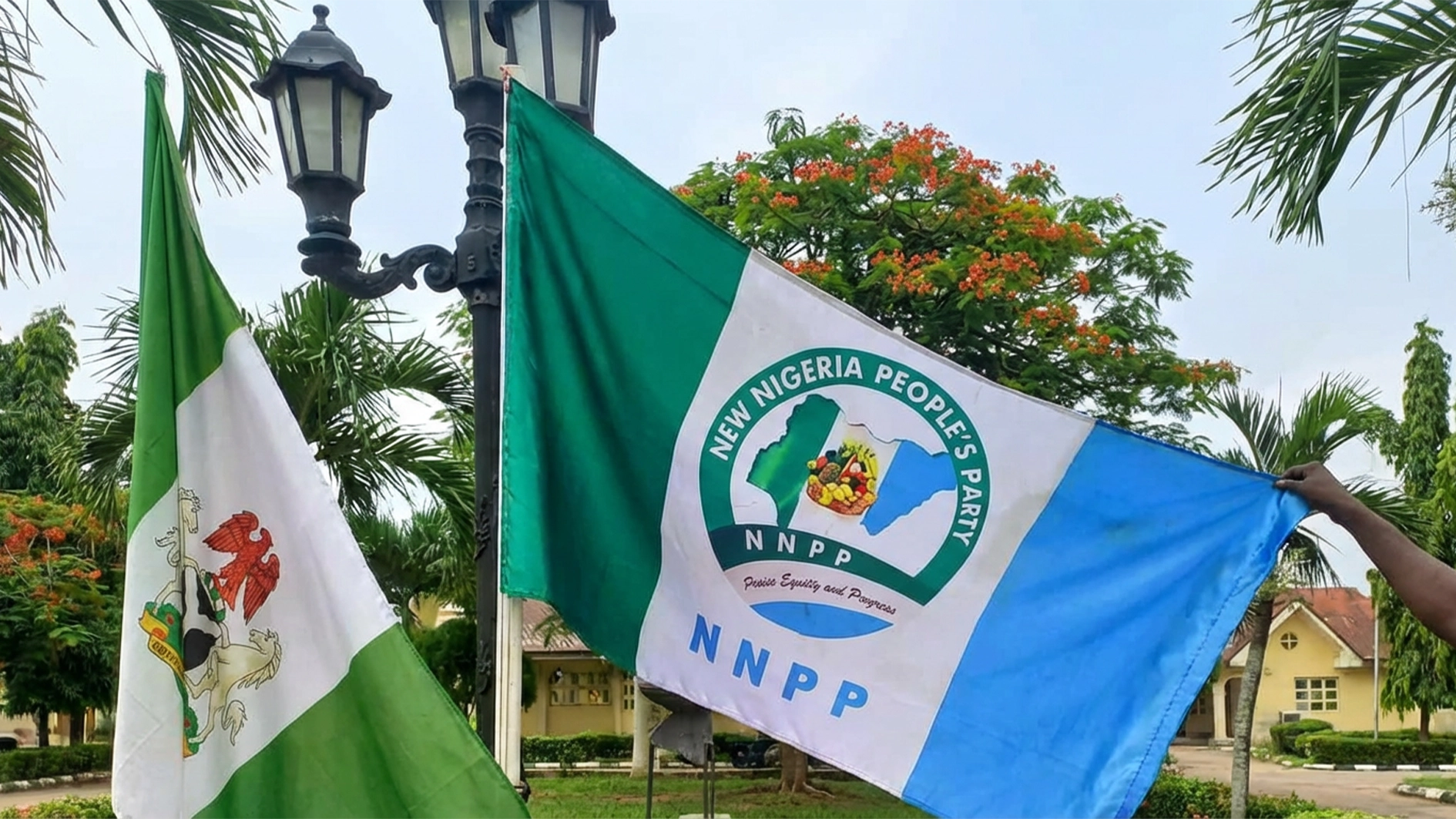
Other than serving the purpose of throwing up new leaders, the recent local council elections in Ekiti State presented a study on how state governors could hold back from interfering in people’s choices of leaders at the grassroots, mainstreaming gender inclusion and deepening democratic culture, among other lessons, AYODELE AFOLABI writes.
Local council elections were recently held in 177 wards across 2,196 polling units of Ekiti State. When the curtains were drawn on the elections held earlier this month, two things had happened.
One, on the watch of the governor of the state, Abiodun Oyebanji, council elections had been held promptly to replace officials whose tenure were expiring in the same month; a development which is a clear departure from the anomaly perpetrated by some other governors, who would rather appoint cronies as care-taker chairpersons with a motive to, often, plunder the till.
Two, which is perhaps the most novel, he had galvanised an unprecedented participation of women in the elections, promoting massive gender-inclusion, and drawing plaudits from Civil Society groups and other gender-based organisations in the process.
In an era when many state governments hardly allow State Independent Electoral Commissions (SIECs) to conduct elections when due without hindrance, and in a country where most political leaders only pay lip service to pledges of gender-balancing in political spaces, Oyebanji might have pulled off a feat akin only to the stuff of angels in politics.
Fittingly, this has continued to draw commendations from far and wide. Some political watchers noted that Oyebanji’s decision not to get involved in the choice of Chairmen and Councillorship candidates of his party, the All Progressives Congress (APC), was a clear departure from the norm, especially in a clime where the executive governors of most states are always hell bent on determining those who get elected to represent the people at the local council level.
Justifying his decision not to impose candidates, the governor had said: “As the leader of the party, I don’t think I should have a favorite candidate and the chairmanship position belongs to the local government because that is the closest level of government to the people. I don’t want local government chairmen that will be loyal to me as Governor of Ekiti State.
“I have sat on this seat for close to one year and I have realised that if you are on that seat and you are not compassionate, you don’t love the people, you can use that seat to destroy lives. So, I wanted Chairmen of local governments that will hold their allegiance to their people, not to me.
“If I sit down here and I just appoint the Chairman for local governments and LCDAs, their loyalty will be to me, not to the people and that will not be good for our people. So, that is the reason I have decided to democratise the choice of political appointments. And so far, I think it resonates well with the party people because the leadership also consulted with traditional rulers, opinion molders in the state and local governments before they came up with the names.
“I can assure you that I didn’t get involved in any of them and I am okay with that. I am not here to build a structure for myself; the structure must be built to serve the people of Ekiti State because the state is larger than the Governor.”
Again, as agitations for women to get more elective and appointive positions reverberate nationally, Ekiti State also surged to the forefront in women participation in politics with female candidates almost dominating the LG poll.
The unprecedented huge number of female candidates vying for various positions was a remarkable development in local council elections in the country. Seven female candidates contested for the chairmanship, 16 candidates for the vice chairmanship position, while 33 female councillorship candidates were on the ballot.
Interestingly, this is an improvement on what the state already has – seven female members in the 26-member state Assembly and at least four commissioners out of about 18.
Commenting on the development, a political affairs commentator, Akin Omoyajowo, described the development as not only unprecedented but healthy for gender equality being championed by womenfolk.
“Ekiti appears to be setting the pace on the affirmative action being proposed by the gender-based civil society organisations. Although there is still room for improvement, the political leaders in the state should be commended for the uncommon feat,” Omoyajowo said.
Also, a civil society organisations chairperson, Mrs Beatrice Ogunjobi, lauded the Ekiti State chapter of the APC for gender balancing in the choice of its candidates. She urged other political parties to take a cue.
Ogunjobi expressed the desire to see the development replicated at the national level. “Ekiti has set the pace in gender inclusion in politics, which is not only commendable, but must be emulated by other states.”
As it is now custom in almost all local council polls across the country, the Ekiti election also recorded low turn of voters, which many have attributed to lack of proper sensitisation by both the SIEC and the political parties. To them, the electorate needs to have confidence in the process and believe that their votes would count.
Regardless of the turn-out, candidates of the APC were declared winners in all the 16 local governments, 22 Council Development Areas and 177 Councillorship seats, although two dominant political parties in state, the Peoples Democratic party (PDP) and the Social Democratic Party (SDP) did not participate in the election.
While receiving the results from returning officers at its situation office in Ado Ekiti, the State Independent Electoral Commissioner, Retired Justice Collinus Akintayo had noted that the election was contested with participation from different political parties.
According to him, the parties that participated in the poll included the Labour Party, Zenith Labour Party, Action Alliance, Action Democratic Congress, New Nigeria Peoples Party, and Peoples Redemption Party, among others.
Civil Society Organisations (CSOs) under the auspices of the Nigerian Human Rights Community, NIHRCO, which monitored the election in the 177 wards, noted that the exercise demonstrated the quality of leadership in the State.
NIHRCO, which is a coalition of 135 civil society and community-based groups across the country, said the election was peaceful, devoid of violence and rigging while the outcome represents the freewill of the voters.
The coalition, in a statement by its officials, Fred Ojinika and Taiwo Adeleye respectively, said: “The local government election was not perfect, but it represented a remarkable achievement in building sustainable democratic culture in Nigeria.”
They commended the Ekiti State Independent Electoral Commission (EKSIEC), for early arrival of materials and effective administration of the entire process that had almost zero hitches. “The election is a confirmation that states can run their own affairs better than the central government,” the statement added.
NIHRCO said there was no single case of violence, the security was excellent, the materials arrived on time while the voters were orderly and cultured. It said that there was no intimidation of voters while financial inducement was not witnessed by any of our observers.
The coalition, however, said that though the turnout was above national average, it was not in line with global expectations. It said monitors observed that the opposition parties were nonchalant towards the election, adding that those interviewed argued that the leading opposition parties did not show keen interest in the election build up, neither did they campaign during the run up to the election, indicating that the opposition in the state might have been weakened compared with what obtained in the past.
It also said that Ekiti needs more polling units given the growing population and the increasing number of new settlements observed during the election, which were not hitherto covered either by the Independent National Electoral Commission (INEC) or SEIC.
“The National Assembly and the INEC needs to work with the SEIC to ensure that Bimodal Voters Accreditation System (BVAS) are deployed in local elections because national elections are as important as local government elections.”
The group said using BVAS for national elections is good but that the same technology should be used in council elections, which may require special funds for SIECs to enable the institution develop the technology that will broaden popular participation, ensure real time transmission of results taking local government elections to a higher level.
NIHRCO noted that the election had its own strengths, opportunities and shortcomings that should be addressed to deepen democracy and people’s representation at the grassroots.
“We commend what appears to be the high moral ground of the Governor of the State, Biodun Oyebanji who earlier embarked on a non-violence campaign across the state, using the extensive media space ahead of the council election,” it said, noting that a deliberate policy of non-violence by state actors is essential for sustainable development.






